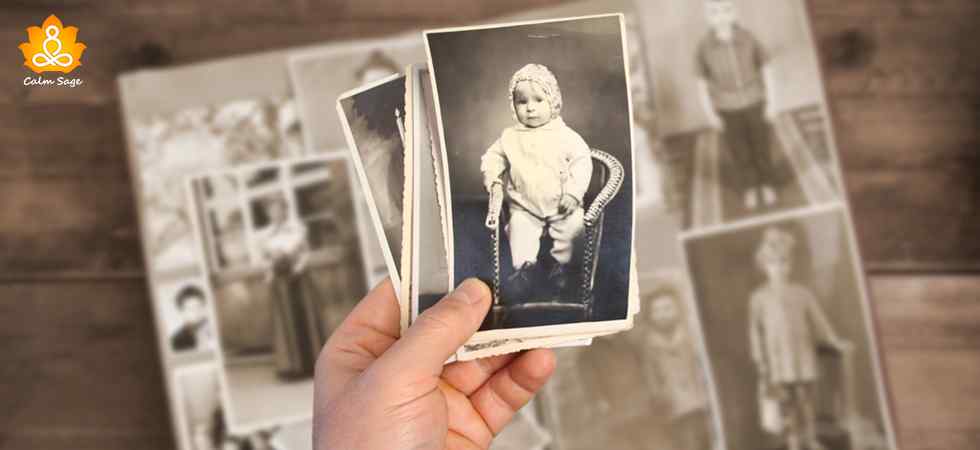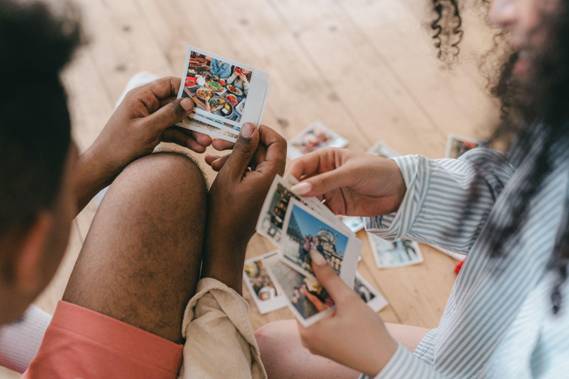The Powerful Embrace of Nostalgia And Its Effects on Our Mental Well-Being

“It only takes a moment to get lost in the past.”
How true is this, right? The moment you open Pandora’s box of memories, you’re transported to a time when everything was easy and when you were your happiest. The longing and wistfulness you feel are what we call nostalgia. Nostalgia is a powerful emotion that can take us on a journey to the past.
Some call it a sentiment that evokes a mix of happiness, longing, and melancholy. To others, nostalgia holds the magical ability to transport them to moments and experiences that are hard to scrape off from the heart and mind.
More often than not, the emotion – nostalgia – is triggered by something that reminds you of your past and evokes a desire to return to the past. While nostalgia is often associated with happy memories, there are some negative effects of nostalgia as well that we’ll be discussing in this article today.
Understanding Nostalgia (With Examples)

Derived from the Greek words. “Nostos” means return home and “Algos” means pain, nostalgia is a sentimental longing for the past. It often revolves around happy memories and cherished experiences that hold a personal significance in our hearts and minds.
Whether you believe it or not, nostalgia is a new term! When this emotion was first discovered in 1688 by Swiss doctor Johannes Hofer, it was described as a neurological disorder. It was in the 19th century that nostalgia was re-discovered as a positive sentiment than a disorder.
Examples of Nostalgia
Some common examples of what can trigger nostalgia can include;
- Childhood memories or recalling the days of youth long gone. Seeing childhood toys or reminiscing about childhood traditions can also trigger nostalgia.
- Revisiting places and landmarks that hold some personal significance in your life such as your old school, youth vacation spots, etc.
Types of Nostalgia
Nostalgia can be of two types; positive and negative. As the terms suggest, positive nostalgia is described as something that evokes happy memories and is often associated with feelings such as warmth, comfort, contentment, and happiness. Whereas negative nostalgia can be described as something that evokes painful memories and is often associated with feelings of loneliness, sadness, bitter longing, and regret.
Other than that, nostalgia can be divided into two categories;
- Personal Nostalgia: The type of nostalgia that is focused mostly on your memories and experiences and involves a lot of personal accomplishments, relationships, and life experiences.
- Cultural Nostalgia: The type of nostalgia that relates to a memory of an experience with a cultural or social significance. This involves something along the lines of music, fashion, social norms from your youth, etc.
Is Nostalgia Good or Bad?
The one question that I found was very common when we talk about nostalgia is; Is nostalgia good or bad? Nostalgia is a powerful emotion that can leave a significant impact on your mental and emotional well-being. While we often associate nostalgia with positive feelings, too much of the emotion can become harmful too soon.
Before we look at the negative effects of nostalgia, let’s take a look at the benefits of nostalgia;
- Emotional Safety: Nostalgia provides a sense of emotional safety and comfort when we’re going through something stressful. It allows us to reconnect with our positive emotions and acts as a comfort or happy place when we feel anxious or lonely.
- Improves Self-Identity: When you reflect on your past, you allow yourself to shape your sense of self-identity. You can also work on your personal narrative with the help of nostalgia.
- Strengthens Relationships: When you ponder on nostalgic memories and interactions, it can help strengthen your relationship with your loved ones. It can act as a bonding exercise to share love, laughter, and happiness.
- Builds Resilience: Nostalgia can also offer you a buffer to fight against stress, building resilience. When you reminisce about your past, you can remember your past achievements and success, overcoming adversity in the present.
Negative Consequences of Nostalgia

When we talk about the negative effects of nostalgia, they can be as follows;
- Too Much Idealization: Nostalgia can make you idealize the past too much causing you to overlook the hardships of then. Too much nostalgia can make you feel dissatisfied with the present and halt your growth.
- A Means of Escapism: Excessive nostalgia can become a means of escape and avoidance instead of self-reflection. Many people may dwell too much on the past that they may forget their current responsibilities.
- Depression And Rumination: In many situations, nostalgia can even trigger longing and depressive rumination. Too much nostalgia can lead you to ruminate on your past, increasing the risk and symptoms of depression.
- Loneliness: When you’re too lost in your nostalgic memories, you forget that you have a life in the present moment. Too much nostalgia can make you feel stuck in a loop of loneliness and isolation.
Tips to Avoid the Negative Effects of Nostalgia

You can avoid the negative effects of nostalgia and harness the positive ones by following these tips;
- Be Mindful: No one is telling you to be less nostalgic but when you do indulge in nostalgia, make sure you do so mindfully. Keep yourself in the present when you’re being nostalgic. Don’t allow the long-gone past to hinder your current responsibilities and growth.
- Balance it Out: You can balance the nostalgia you feel by creating goals. Nostalgia often acts as an inspiration for the future, so use and channel your nostalgia by creating future goals you can work towards.
- Connect With Your Loved Ones: When nostalgia hits you, you can connect with your loved ones rather than keeping it within yourself. With this, you can also foster connections and experiences with others as well as create new memories and experiences together.
- Do Things That Make You Happy: When nostalgia hit, try to engage in things that make you happy instead of feeling sad. You can listen to your favorite music, go on a walk, or watch a movie that connects you with your past in a good way!
- Seek Support: If you find yourself losing your mind and heart to nostalgia, then don’t hesitate to ask for help and support from a professional counselor. A professional can help you navigate through the processing of this emotion in a way that’s good for your heart, mind, and body.
Wrapping Up
Nostalgia is a fairly remarkable emotion that is not only powerful enough to transport us to the most cherished parts of our lives but also acts as a bridge between our memories and emotions, evoking feelings of happiness as well as longing. Learning the types of nostalgia, the benefits of nostalgia, and the negative effects of the same can help us maintain healthy mental and emotional well-being.
When you approach nostalgia with mindfulness, it can bring you emotional comfort, offer a sense of self-identity, and even help cultivate resilience. But too much nostalgia can take your focus away from your present and make you feel stuck in a loop of loneliness and rumination.
You can harness the powers of nostalgia when you allow yourself to be mindful, balance the nostalgia with your future, connect with your loved ones with the shared memories, and by doing things that make you feel happy and content.
Nostalgia might be a beautiful emotion, but it can be destructive as well when you can’t balance it out. I hope this blog will help you embrace nostalgia and find the perfect balance for your growth and well-being.
Let me know what you think about being nostalgic and its effects on our well-being in the comments section below.
Take Care. Be Well!




















